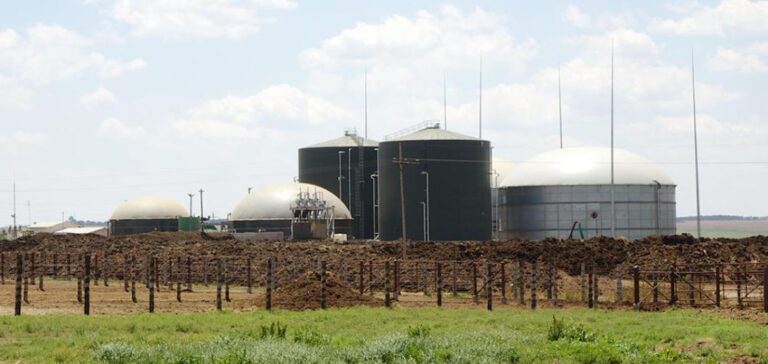Rwanda is considering the introduction of sustainable and affordable technologies to produce biogas for domestic consumption.
Slowing down of biogas
Rwanda has been promoting the use of biogas since 2007, despite a high number of idle production plants. Indeed, biogas is an environmentally friendly and renewable energy. It comes from biodegradable organic matter such as kitchen, animal and human waste.
Rwanda seeks to reduce the share of biomass from 79.9% in 2018 to 42% by 2024. However, biogas is projected as one of the still relevant clean energy sources. In 2022, out of 9610 biogas plants built, 5157 are not operating.
This represents 54% of the shutdown biogas plants. They were 53% in 2020. The reason for this is the lack of maintenance capacity of the facilities.
This deficit forces the population to use firewood or charcoal as fuel. This situation also results from the lack of material for the operation of a biogas digester.
Various non-governmental organizations, such as the World Resources Institute, have announced that they are trying to mobilize civil society associations. It is about strengthening technical expertise, engaging in planning and financing energy access.
The beginnings of solutions
Elyse Umugwaneza, Executive Director of Women in Sustainable Energy (WISE), says:
“We are working on a biogas project using soft waste but we are still in the testing stage as we have samples. Our biogas will be affordable because we are making it from soft waste from landfills, which is cheap compared to cow dung.”
The price of biogas will then be 1060 Rwandan francs compared to the current 1400 Rwandan francs. This proposal could enter the market in July 2023.
In addition, an Israeli company, HomeBiogas, will soon provide biogas systems to farmers in eastern Rwanda. However, despite the need for renewable energy, 7 out of 10 people still do not have access to electricity.
This energy situation hinders the economic development of Rwanda. However, if civil society raises funds, they must also promote renewable energy. Africa would need $11 billion to develop renewable energy, according to NGOs.
Charles Mwangi, head of programs and research at the Pan African Climate Justice Alliance, says:
“There is a need for access to affordable and reliable energy for community facilities, including schools and health centers/clinics, which will be central to the delivery of needed services, thus positively affecting the well-being of underserved populations in rural areas, as well as other locations.”
The Pan African Climate Justice Alliance is a consortium of over 1000 organizations from 51 African countries. It aims to meet the climate and environmental challenges facing humanity and the planet.
Energy demand in Africa is growing at an annual rate of about 3%. This is the highest rate of any continent. Energy supply continues to lag behind.






















